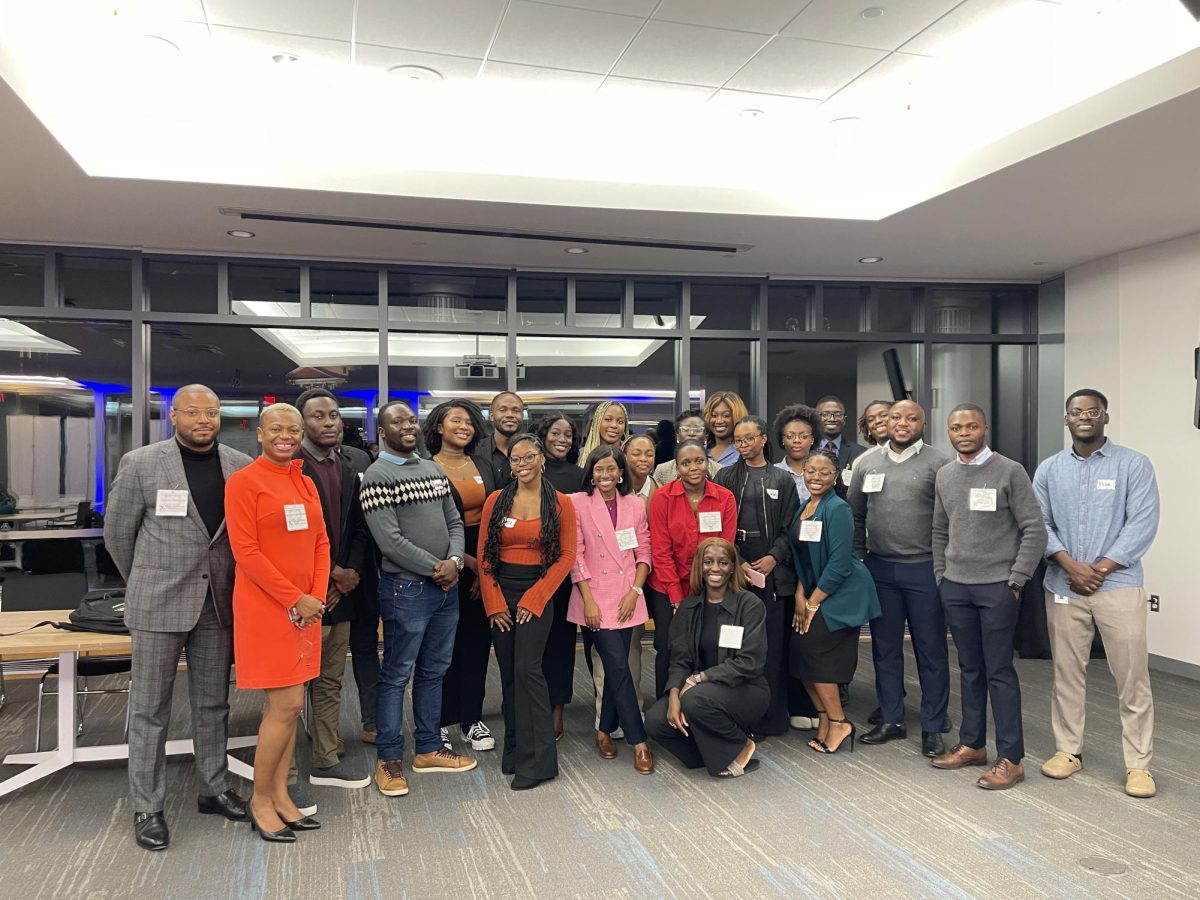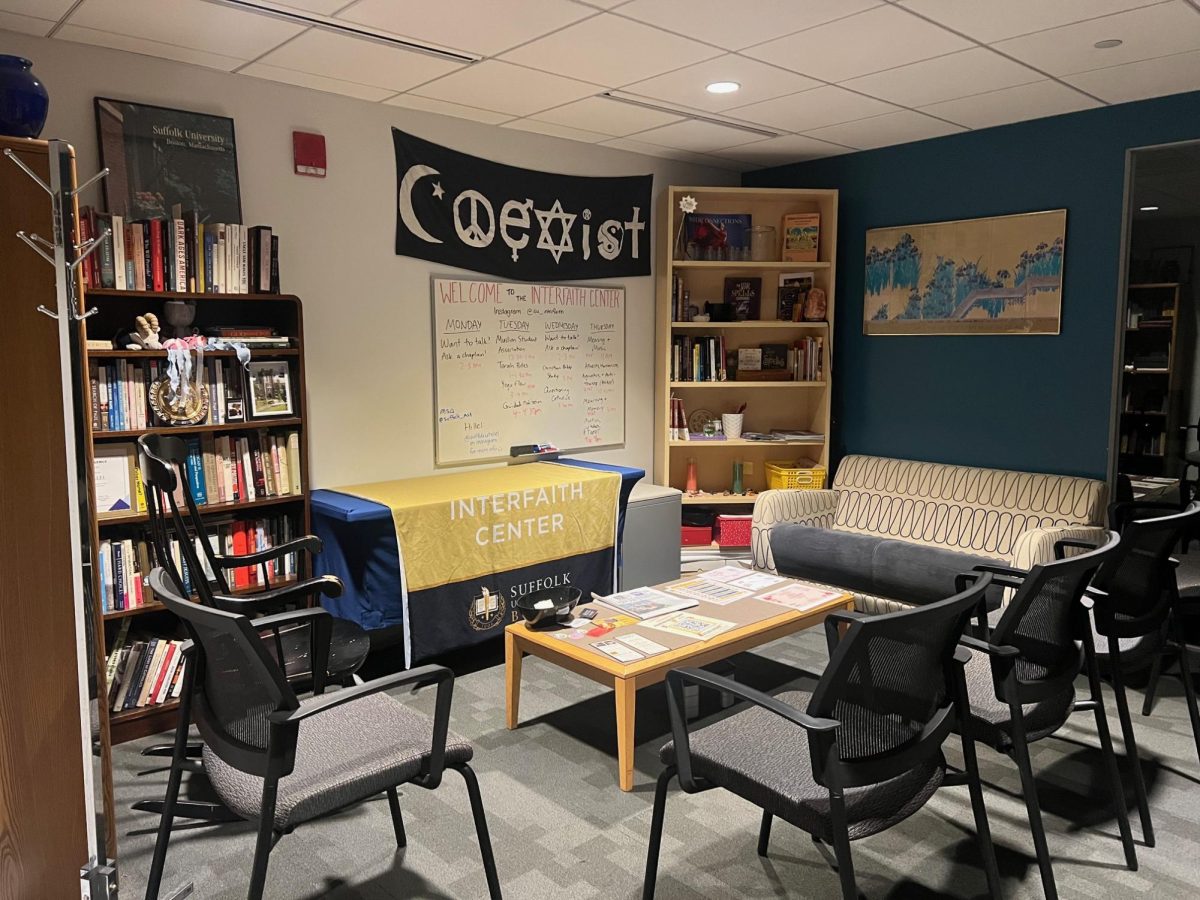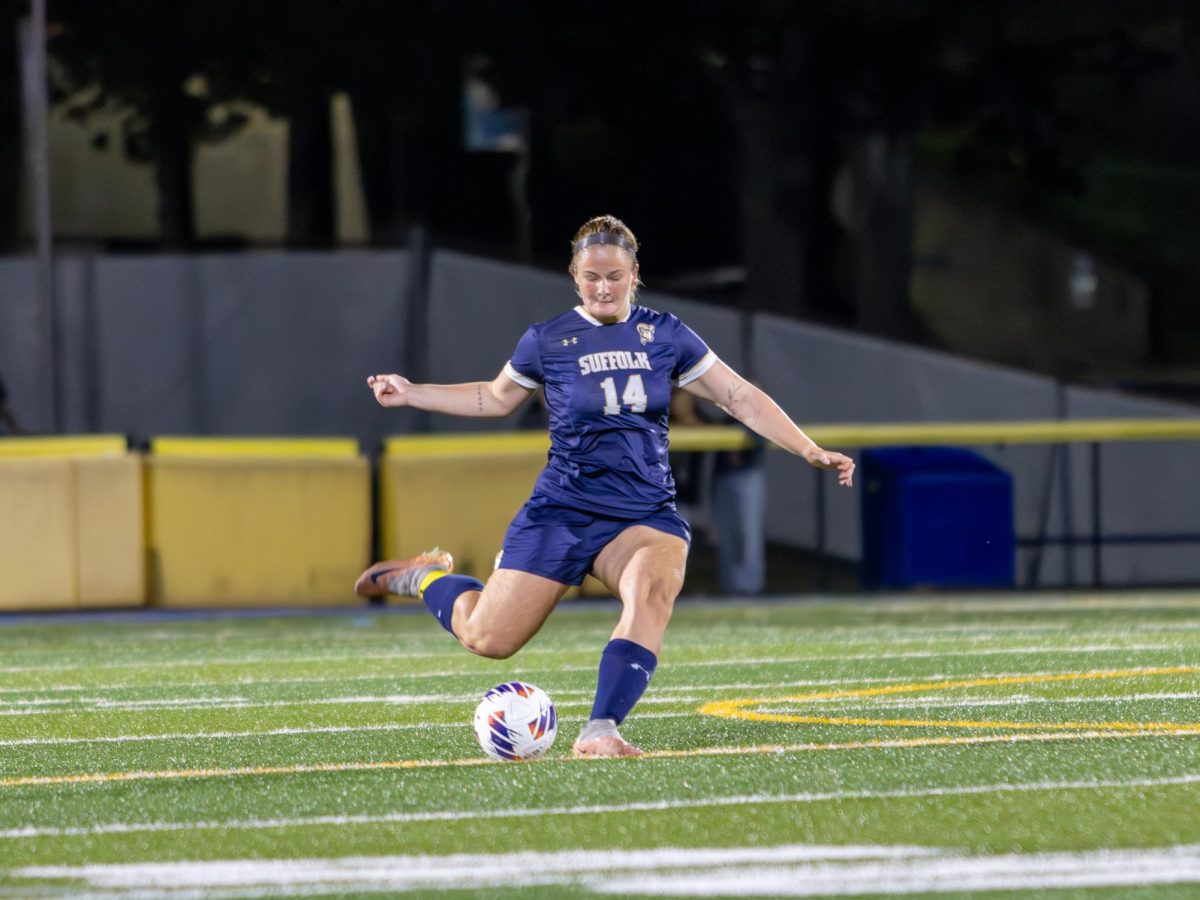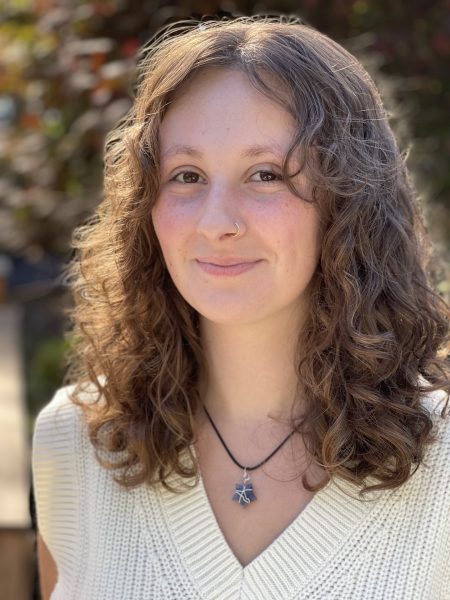Eight people across various industries gathered together for Suffolk’s African Student Association professional panel Oct. 25 to inspire and give insights to Black and African people entering the workforce.
The goal of the panel was to give students insight on the career fields they may be interested in, while highlighting the challenges and experiences people of color face while pursuing these careers. The panel highlighted identity, advice and obstacles they have overcome through their diverse career fields.
Roughly 24 people, including ASA’s e-board, attended the event. This allowed for a more personal connection between the panelists and the participants. With opportunities for networking and one-on-one conversations, those who were there walked away with new knowledge and contacts with professionals in fields they may be interested in pursuing, all of which was the goal of the program.
Stephanie Thulare, a senior law major at Suffolk and secretary of ASA, said after the event that she would “encourage more people to come because it was a very insightful panel.”
Thulare was the mediator of the panel and worked behind the scenes to make the event possible.
The panelists included two Suffolk alumni including Sein Dukubo, a business system analyst for the City of Newark’s Water and Sewer Utilities in New Jersey, and Destiny Ihenacho, the research director for Public Safety and Homeland Security.
Additionally, panelist Courage Chakanza is currently pursuing a dual master’s degree in finance and business analytics at Suffolk while also working as a business analytics professional. The other panelists were Gifty Kessie, a quality engineer at Avantor; Silvana Boaheng, assistant director of social media at MIT; Elizabeth Taylor, a political science and leadership professional; Doxa Asibey, a technical project manager at Travelers; Felix Frimpong, assistant field director for Boston Field Office and Emmanuel Adjei, a network engineer.
One of the questions that was asked during the panel discussion was, “How has your identity as an African professional shaped the way you approach challenges in your identity?” Many panelists talked about the “African mentality” that prioritizes hard work over all else.
Ihenacho talked about the implicit racism that exists in the workplace, not just as a Black person, but as an African. He talked about the external and internal factors that go into his dedicated work ethic, saying many Africans, himself included, have to work four to five times harder to prove their place.
“They already see us as underqualified,” Ihenacho said during the panel. “I refuse to give them more of a reason.”
Boaheng highlighted the learning curve she faced when realizing that taking care of her mental health was just as important as working hard.
Taylor also added that hard work does not always have to look like keeping your head down and keeping to yourself. She said to be a hard worker while “lifting your head up.” Taylor explained that by connecting with other people in the field, you can have more opportunities in the future.
Another question that was posed to the panel asked, “What are some struggles or issues you’ve overcome in your career space?”
Dukubo answered this question with a piece of advice for the audience members who may face adversity in the workforce.
“You’re there for a reason,” Dukubo said. “They need you.”
With this, he explained that even through the adversity Africans and people of color face, there is a reason they are in the space they are in and that you should never forget that you have a purpose there.
The final question asked to the panel was, “What advice would you give to young African professionals?”
A few of the panelists spoke on the pressures that many African parents put on their children and how that can add to the stress of college and careers. Frimpong said that as the child of African parents and as a father himself, the goal of parents is to create a plan for their children so they can be successful.
Frimpong’s advice for people feeling familial pressures and may not be pursuing the career their parents wanted for them is to “convince them you have a plan.”
Asibey spoke about her experience being an African woman in the tech field and how she had to learn how to stand up for herself when her cultural instincts have always been to “be polite” and not brag about yourself.
“Put yourself in places where people will remember you and advocate for yourself,” said Asibey.
Many of the students who attended the event took away valuable insight and inspiration.
Kayla Julien, a senior radiology major, said she was, “meant to be [t]here. A lot of things were speaking to me.”
Brandy Altidor, a junior business management major, said that as a Haitian-American she found the panel as a great opportunity and inspiring.
“You don’t need to be African to learn about this,” Altidor said.
The professional panel allowed students of color to see themselves in the career fields they were interested in. Thulare said that ASA will be looking to plan more panel and networking events in the future.




















